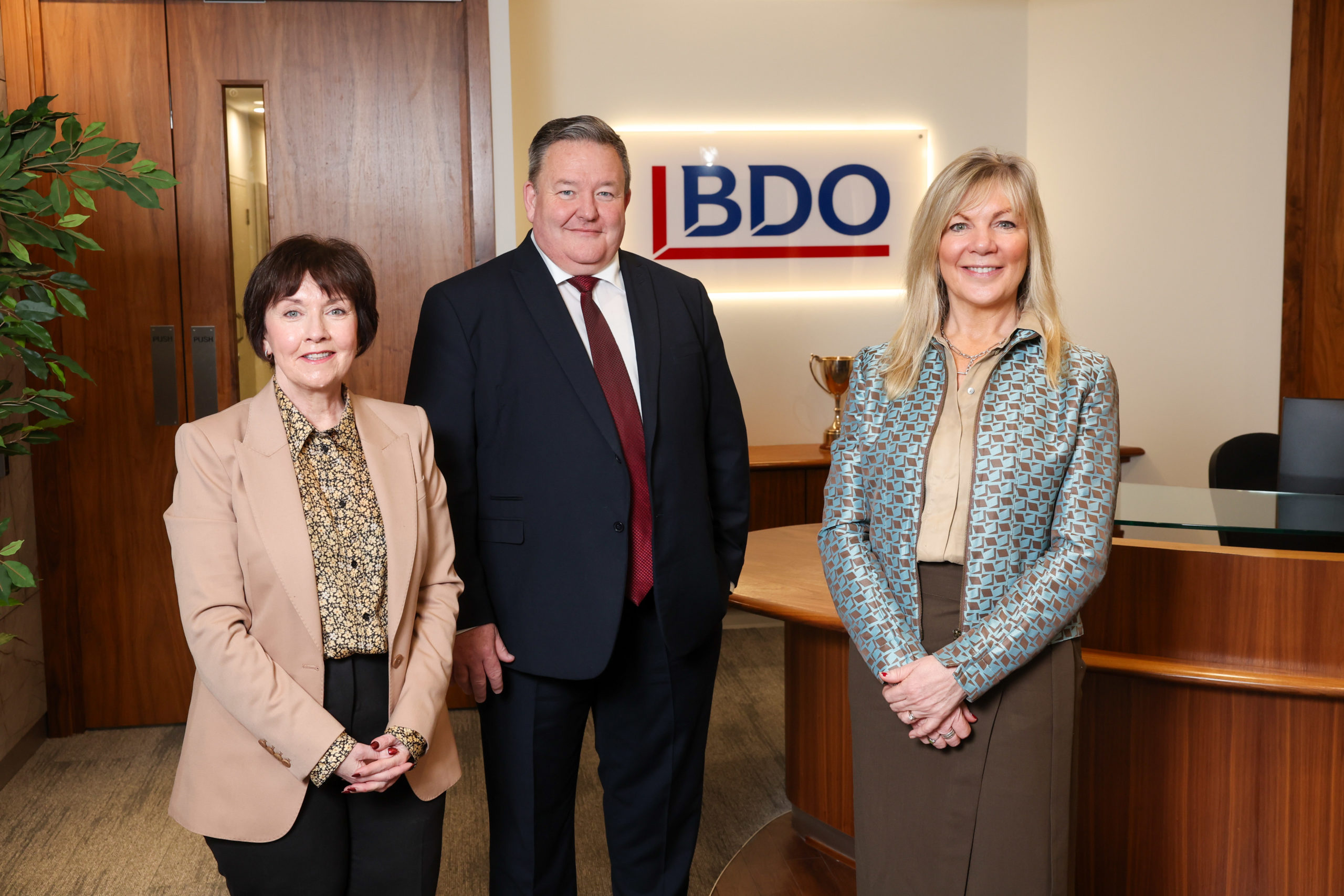Recruitment and retention will be a top priority this year, as NI Chamber members focus on employee wellbeing, settling hybrid working arrangements and competitive remuneration.
- 78% of businesses in Northern Ireland are performing well or reasonably
- 64% believe their own business will grow this year
- 40% believe the Northern Ireland economy will grow in 2024 while 39% believe it will contract
- Top 3 areas of focus for recruitment and retention include competitive remuneration, staff mental health and wellbeing and settling office/hybrid working arrangements
Almost two thirds of NI businesses believe they will grow in 2024, according to a new report published today (16 January 2024) by NI Chamber and BDO NI. In a survey carried out in Q4 23, two in five respondents (40%) said they believe the NI Economy will grow in 2024. A similar share (39%) believe it will contract.
The share of businesses who said they were performing well or reasonably in Q4 23 is high at 78%. 36% are trading well, up from 31% in Q4 22. Across the report, many key indicators are positive with more firms reporting increasing employment, confidence and investment intentions than those reporting a fall. However, a little over 1 in 5 respondents (22%) are just covering costs or struggling.
People and skills
70% of businesses said that competitive remuneration packages were a priority area in relation to the recruitment and retention of staff when looking ahead to 2024. Two in five (40%) reported that they would prioritise workforce mental health and wellbeing programmes, while 36% mentioned settling hybrid working conditions as a priority going into 2024. The top three priority areas of focus for businesses in relation to skills and training include developing a culture of lifelong learning (49%); digital skills (43%) and innovation support (39%).
Business confidence
Confidence that turnover will grow in the next 12 months (+59%) is up significantly on the same quarter last year (57% Q3, 47% Q4 22). According to the Q4 23 findings, firms appear more confident around profitability, as some cost pressures continue to ease.
Recruitment activity remains high with 70% trying to recruit (67% Q2, 72% Q1), although fewer businesses are growing their employment base compared to the same period last year. Recruitment difficulties persist with 79% of those recruiting experiencing difficulties (82% Q2, 79% Q1 23). Rising labour costs is now the most significant pressure on firms to raise prices.
Prices and costs
In Q4 23 the balance of Manufacturers expecting to raise prices was +29% and for Services, +51%. This is down considerably from a peak of +88% for Manufacturers in Q1 22 and for Services at +76% in Q4 22.
In terms of internal pressures, labour costs remain the biggest price pressure for both sectors – this is the only cost area where pressure has grown over the year. In Q4 23, 92% of Manufacturers and 91% of Services firms reported labour costs as a key pressure on them to raise prices. Raw material costs are a pressure for 62% of Manufacturers, down from 84% a year ago. Fewer firms are also reporting pressure from utility costs and fuel. Over the last year the share of Manufacturers reporting utilities as a pressure to raise prices has fallen from 80% to 60% and in Services from 88% to 49%.
In terms of external pressures, inflation remains the most pressing concern for members but continues to show positive signs of easing for both sectors. In Q4 23, 57% of Manufacturers reported inflation as a greater concern than 3 months ago, down from 65% in Q3 23 and 92% in Q4 22. For Services, 57% report inflation as a key concern in Q4 compared to 75% in Q3 23 and 85% a year earlier. Competition is a growing concern for both sectors with 43% (31% Q3) of Manufacturers and 44% (41% Q3) of Services highlighting competition as a greater concern than 3 months ago. Just under 2 in 5 firms are concerned about interest rates.
Demand
Around half (53%) of members are seeing some slowdown in demand, although for most only a little (40%). More than 1 in 10 (13%) are experiencing a significant slowdown in demand, almost doubling from 7% in the first quarter to 2023.
Business Asks
In an open-ended question, survey respondents were asked to share their top-asks for the year ahead. The most popular responses included a reduction in business rates/taxes, the return of the NI Executive and support with recruitment, as well as reduced energy costs and better energy security.
In a similar vein, when asked to indicate their top concerns for the year ahead, businesses cited the implications of rising business costs, recruitment/staffing, lack of an Executive and lack of demand.
Commenting on the survey findings, Suzanne Wylie, Chief Executive, NI Chamber said:
“We are encouraged to report that a majority of our members are starting this new calendar year with an optimistic outlook and at NI Chamber, we certainly share their desire to focus on maximising the opportunities which 2024 presents.
“However, it is also clear that to realise their growth potential, businesses have a very clear and urgent set of asks, which need to be delivered by both a Westminster government and a restored Executive.
“2024 must be a year when the issue of spiralling business costs and taxes is tackled in a way that unlocks sustainable growth. With the Spring Fiscal Statement soon upon us and the possibility of a restored Executive ongoing, if we get it right, the beginning of 2024 can be a springboard for growth. And as businesspeople we must work with policymakers to ensure it is delivered.”
Brian Murphy, Managing Partner, BDO NI added:
“The new year brings renewed hope of economic growth for Northern Ireland as these latest results clearly show a positive outlook for local businesses. With 78% performing well and two thirds of local firms expecting their businesses to grow in 2024, there is cause for optimism after an uncertain and challenging period for many. This confidence in business performance marks a significant increase from last year and, if delivered, will undoubtedly lead to growth for the entire region.
“Concerningly though, challenges still remain around recruitment with nearly eight out of ten reporting difficulties in finding the right candidates, resulting in 49% of local companies currently operating below capacity. However, we can take heart from the fact that 70% of participating businesses in Northern Ireland reported plans to create and fill jobs in 2024, based on both existing need and greater confidence. This is positive news for those seeking to join the workforce or looking for a new role.
“That we are able to report such positivity today is a testament to the fortitude, resolve and vision of our local business community, our entrepreneurs, innovators, and workforce who have fought the challenges and delivered success. The outlook for 2024 is optimistic, but to really capitalise on this momentum what we need now is for the restoration of local Government to in turn take decisions on the issues businesses need addressed.”


